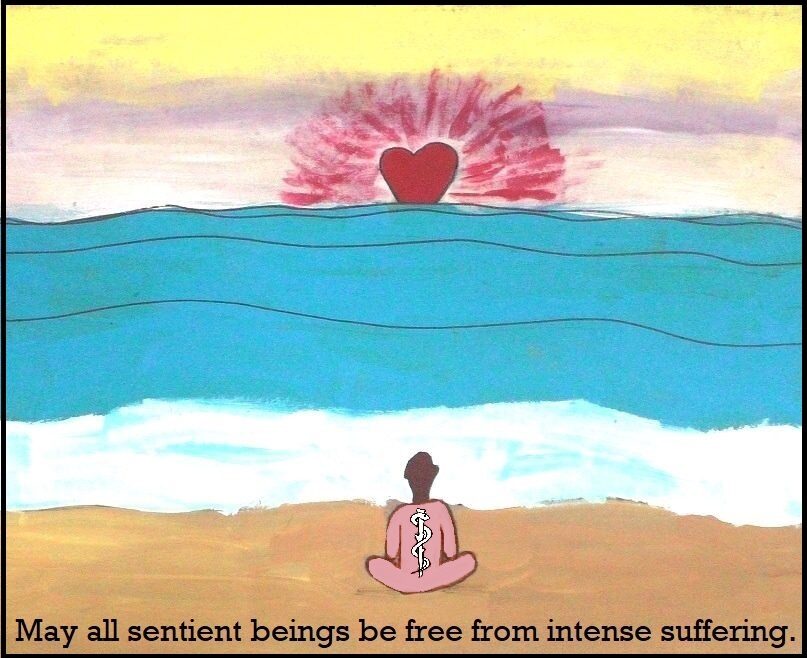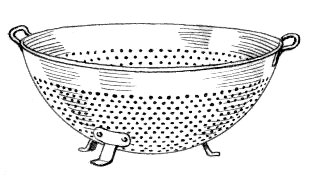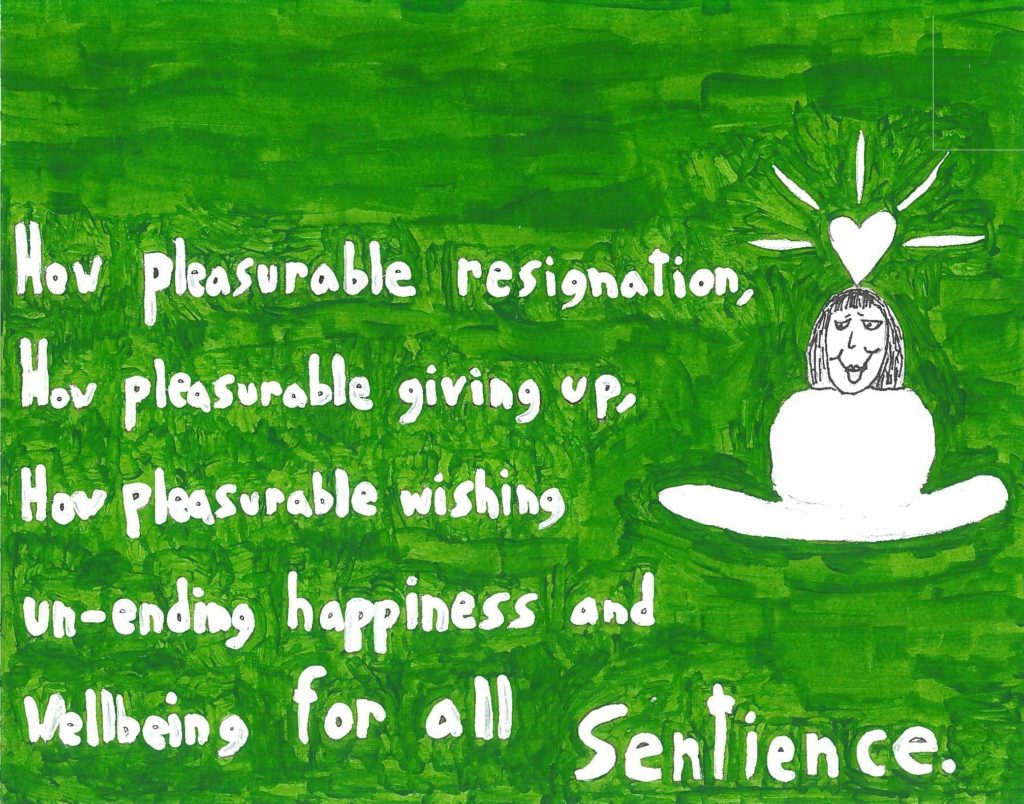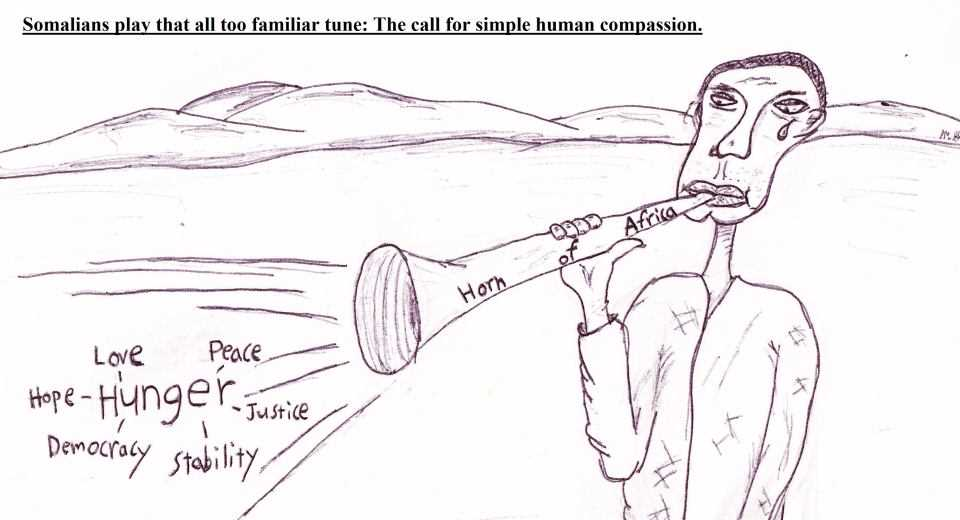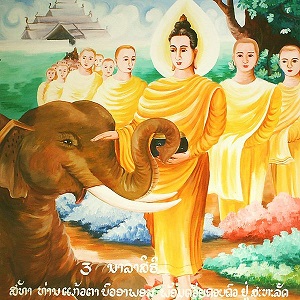Sieve: ” a utensil consisting of a wire or plastic mesh held in a frame, used for straining solids from liquids, for separating coarser from finer particles, or for reducing soft solids to a pulp.” – Oxford Learner’s Dictionary
“May the poor find wealth,
-Shantideva1
Those weak with sorrow find joy;”
Intro
Meditation profoundly changed my life and axiology; Through its neuro-chemical whisperings I came to believe that for me what ultimately matters is the well-being(non-suffering) of all sentience. Other things influenced this view also, like reading philosophy and seeing images of suffering though photography and videography. But meditation played a seminal role in forming my ethical world-view; My discovery of meditation was a Road to Damascus moment, a “flash of lightening in the night”, and like an ethical Occam’s Razor, has sheared my path from that day to the present.
Like a sieve separating liquid from solid, meditation makes it “clear”(in an intuitive sense) that what is important in life is the happiness of yourself and all sentience. Historically, I believe it was the overwhelming feelings of loving-kindness during meditation that inspired Buddhist monks to say things like this:
““And let no being ever suffer pain;
. . .And may their minds be ever free from sorrow.”2
Expressions of universal concern like the one above are a hallmark of the meditative experience: the desire to cradle the world in your embrace and cure every ill. When I meditate, it feels like a force possesses and cranks the film projector of my Cartesian Theatre, intimating that I adopt a general axiological position, roughly a mixture of Suffering-focused Ethics and Care Ethics! I would like to give a quick sketch of how this manifests during a meditation session. This doesn’t happen during every meditation, but with practice it occurs regularly:
General example of meditation process and effects
I do yoga stretches(usually the sun salutation) for ~5 minutes. Then I sit on a chair with my feet flat on the floor. I take off my glasses, place my hands in my lap, and pay attention to my breath. For the first 10 or 20 minutes I am very distracted and get lost in ‘thought paths’. My brain runs through simulated scenarios, acting and re-enacting dialogues I’ve had or may have in the future. It’s like being in the center of a revolving theatre, where different scenes appear and you enter each stage as one of the main characters, forgetting that you are sitting in meditation– If all life’s a stage, then your thoughts are the dress rehearsal!
After sitting for ~45 minutes I’m struck by a sea of endogenous empathogens, deluged by a tidal wave of universal loving-kindness. It’s difficult to describe precisely, but these are the general features of the experience:
- A tingling warmth flows through the body, much like the feeling of sitting by a window in winter, with sunlight pouring through every layer of skin.
- There is a taste-able silence while your consciousness fills with anxiolytic calm.
- A lot of times family members or friends or even a random person/animal will pop into the mind and then the thought ‘I love them so much’.
The shift in consciousness is startling. It’s like discovering a subterranean realm of your mind, as if you’ve lifted the veil on a slice of reality that feels more “true” than ordinary, busy phenomenology. Personal preferences feel satiated3, along with a powerful wish to help others. You feel that to love and to help others is the most important thing you can do in life. Everything else, like your child getting into a good college, or memorizing who fought in the Seven Years’ War seems, as Aldous Huxley said, “Trivial. Like things in a five-and-ten.4“
I realize that if all sentient beings felt as I did now, the world would be perfect. In this warm cocoon of consciousness I remember(sort of in the Platonic sense of recollection) that affective tone is the field where terminal moral values play out(all other standards seem silly), and that what one ought to do in the world is try to make the uncomfortable more comfortable.
And it seems so attainable when you are in this state! As if you could reach your arm with a loaf of bread directly through a television into the hands of a starving child, or wrap a freezing dog in the warmest blanket at a distance with the power of your mind. After a meditation session you can usually find me in ecstasy, standing around the bus-stop listening to my breath, smiling at people in wordless bliss, and fantasizing about how Nostradamus must have been so mindful when tending to those sick with the plague, rushing into devastated French cities equipped with rose petals when everyone else was running out.
Conclusion/Eudaimonia
These feelings lead to the idea that you have found your eudamonia, that your happiness is intertwined in the well-being of others. You feel existentially ‘realized’; Like there is nothing left to do but ooze yourself out into the world as an all-encompassing benevolent substance: donating every part of your body until you exist totally in others, vaporizing yourself into an analgesic mist that heals the world. These feelings can serve as motivation to do real good in the world, to mollify and soothe the achings of a suffering planet.
Footnotes/References
1: “Santideva quotes”. www.goodreads.com. 2019.https://www.goodreads.com/author/quotes/29132._ntideva. Accessed 29 Mar. 2019.
2: Shantideva. The Way of the Bodhisattva. Boston, Shambala Publications, 1997.
3: You don’t realize it until you are in this meditative state, but ordinarily you have an unconscious list of irritations, unsatisfied preferences, and what Buddha would call “dukkha”, or disquietude. I even think the everyday-allday subvocalizations of inner discourse are somewhat frictious. But when in the meditative state it’s as if your body disappears(not only do you have no somatic or psychological complaints, it’s as if you forget you exist as a unitary being with self-concerns (Your mind is perfect), and your consciousness is transformed into a device with one desire: to shine an anti-suffering light in all directions. This is similar to the modern notion of utilitarians transforming themselves into functions for maximizing their value-systems. The idea of transmuting yourself into a compassionate resource for the worst off is the basic idea behind the bodhisattva, and the main inspiration for this website!
4. Huxley, Aldous. The Doors of Perception. https://maps.org/images/pdf/books/HuxleyA1954TheDoorsOfPerception.pdf. Accessed on Jul 7 2020.
Images used
- Foresman, Pearson Scott. Colander. 30 Aug. 2007. https://upload.wikimedia.org/wikipedia/commons/f/f4/Colander_%28PSF%29.jpg. Accessed 18 June 2020.
- Author. Resign.
- Author. Horn of Africa.
- Picture of a painting in a Laotian Temple. Buddha with the Elephant Nalagiri. 24 May. 2006. https://commons.wikimedia.org/wiki/File:Buddha_with_the_Elephant_Nalagiri.jpg
